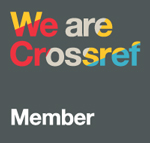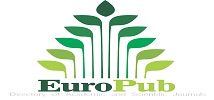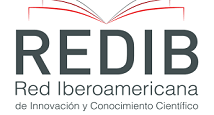Knowledge of Neuroscience and teaching performance at the Juan XXIII-Ica Public Pedagogical Institute
DOI:
https://doi.org/10.51440/unsch.revistaeducacion.2022.20.239Keywords:
Knowledge of neuroscience, teaching practice, neuroplasticityAbstract
The research was designed from the problem: What is the relationship between the level of knowledge of neuroscience and teaching performance at the Juan XXIII Institute of Public Pedagogical Higher Education in Ica?, and from the objective: to determine the relationship between the level of knowledge of neuroscience and teaching performance in the Public Pedagogical Institute John XXIII of Ica, approach quantitative, design correlational, sample 42 teachers, instrument questionnaire survey with Cronbach's alpha statistical consistency 0.814 and 0.87, validation and reliability: expert judgment test, establishing a relationship between variables and dimensions, dimensions with indicators and indicators with items, obtaining the V of Aiken 0.88 for the questionnaire knowledge of neuroscience and V of Aiken 0.904 for the teacher performance questionnaire. Result: for hypothesis testing Kolmogorov-Smirnov normality test with a significance level of 5% showed that 78% of respondents indicate a favorable level of knowledge of neuroscience, among the undecideds 16.7%. In conclusion, the existence of a significant relationship between the level of knowledge of neuroscience and the teaching performance of the Juan XXIII pedagogical institute of Ica was verified according to the statistical test X2 = 47,967 > X2 = 9,488 at a level less than 5% of standard significance (P < 0.05).
Downloads
References
Almirón, R. (2019). Procesos de aprendizaje desde la neurociencia. Universidad Internacional de Valencia. https://www.actualidadenpsicologia.com/proceso-aprendizaje-neurociencia/
Aristizábal, A. (2015). Avances de la neuroeducación y aportes en el proceso de enseñanza aprendizaje en la labor docente. Universidad Militar Nueva Granada. https://repository.unimilitar.edu.co/handle/10654/6186
Blakemore, S. y Frith, U. (2007). Cómo aprende el cerebro. Barcelona. Editorial Planeta.
Battro, A. (20 de enero de 2002). Cerebro, Mente y Espíritu. The New York Times. http://buscador.lanacion. com.ar/show.asp?nota_id=368026&high=neuropsicología 2002.
Campos, A. (2014). Los Aportes de la neurociencia a la atención y educación de la primera infancia. Ediciones Cerebrum.
Castillo, A. (2015). Alcances de las Relaciones Públicas en la Imagen Pública de la Escuela Superior de Imagen Pública de la Universidad Galileo.
https://es.slideshare.net/AlexCastillo33/tesis-alex-castillo-2015
Carazo, V. y López, L. (12 de enero de 2009). Aprendizaje, coevolución neuroambiental en el marco del proyecto consolidación de las acciones del mejoramiento de la formación inicial docente de la educación básica, CECC/SICA. Coordinación Educativa y Cultural Centroamericana. Vol.43 (84). https://multimedia.uned.ac.cr/pem/neurologia_infantil_basica/pdf/1.pdf
De La Barrera, M. y Donolo, D. (10 de abril de 2009). Neurociencia y su Importancia en Contextos de Aprendizaje. Revista unam.mx. Vol.10 (4). https://repositorio.upn.edu.pe/handle/11537/25277
De Melo, T. (2012). Neurociencia + Pedagogía = Neuropedagogía: Repercusiones e Implicaciones en el Avance de la Neurociencia para la Práctica Educativa. Asociación Americana de Psicología. https://dspace.unia.es/bitstream/handle/10334/2075/0341_Ferreira.pdf?sequence=1
Fierro, J. (2003). La práctica Docente y sus Dimensiones. https://es.scribd.com/doc/55838117
Guillen, J. (24 de setiembre de 2012). Neuroeducación: estrategias basadas en el funcionamiento del cerebro.45 (18). https://escuelaconcerebro.wordpress.com/2012/12/27/neuroeducacion-estrategias-basadas-en-el-funcionamiento-del-cerebro/
Pizano, G. (8 de enero de 2012). Las estrategias de aprendizaje un avance para lograr el adecuado procesamiento de la información. Investigación educativa Vol. 16 N° 29 57 - 68 Ene ISBN N° 1728-5852 https:///C:/Users/Personal/Downloads/6646%20
Tapia, I. (2013) Diseño y aplicación de un módulo de neurociencias para educadoras de párvulos: cambio de actitudes respecto de la disciplina. Tesis de Maestría. Universidad de Chile. https://repositorio.uchile.cl/handle/2250/130078
Velasque, N. (2015). “Modelo Pedagógico C3I3”: Instituto de Educación Superior Pedagógico Público “Juan XXIII” Ica-Perú.
Downloads
Published
How to Cite
Issue
Section
Categories
License
Copyright (c) 2022 Zeida Marianela Alvaro-López

This work is licensed under a Creative Commons Attribution-NonCommercial 4.0 International License.





















